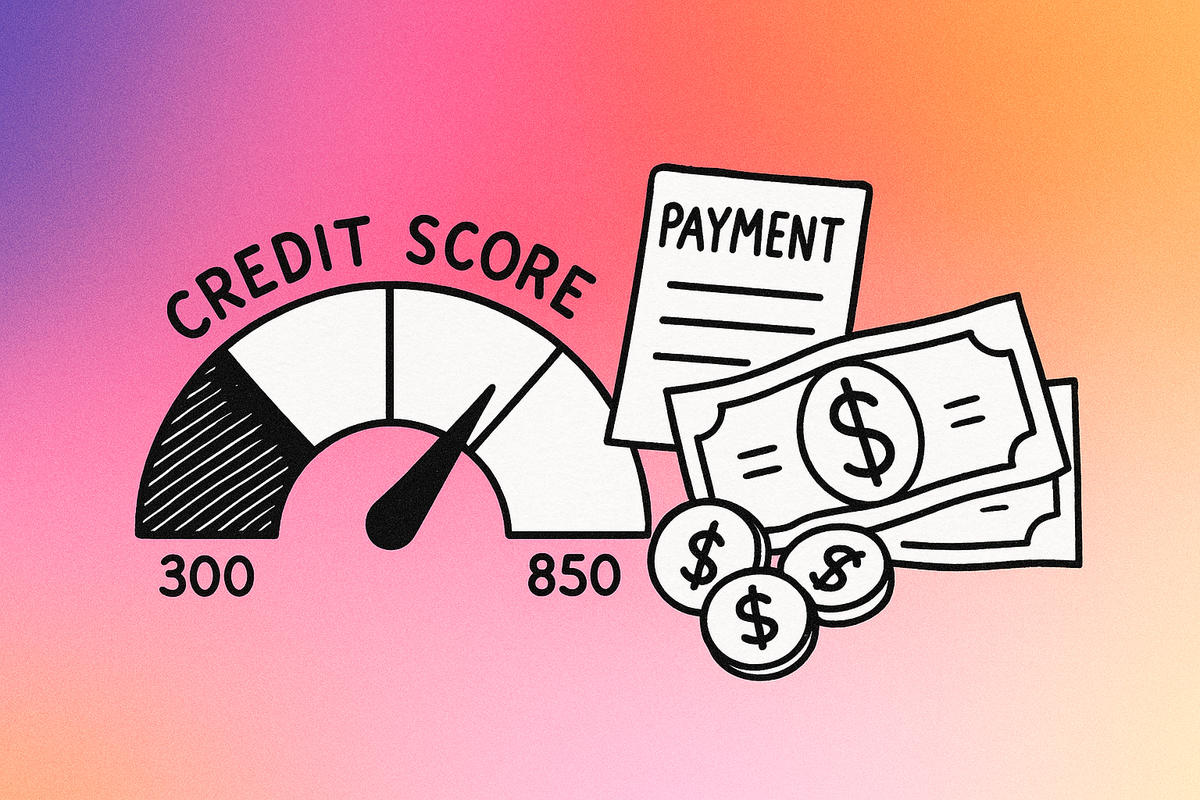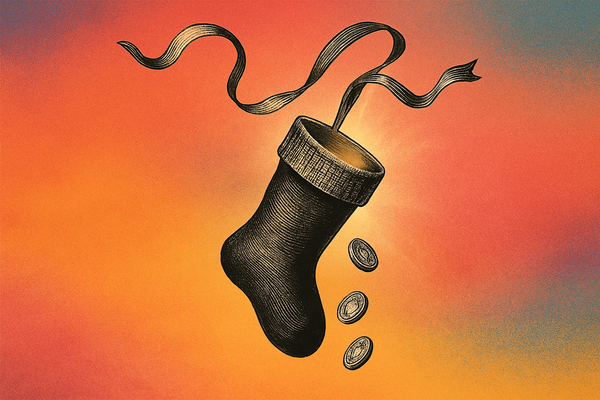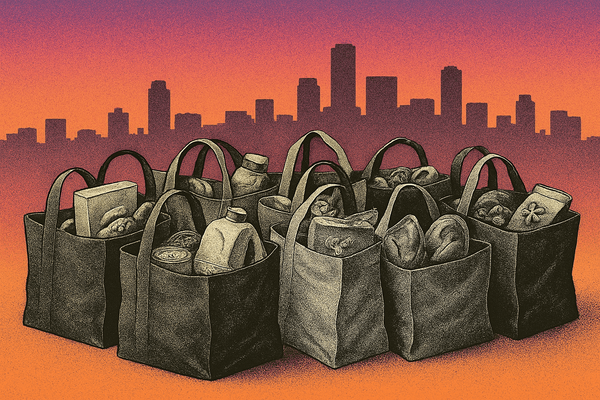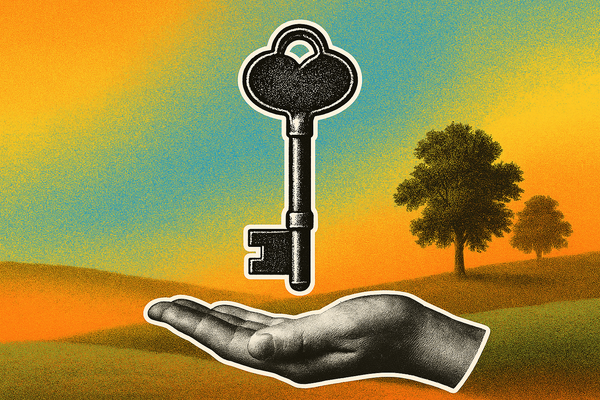Credit Scores: What They Are & Why They Matter (Plus Much More!)
Everything you've ever wanted to know about credit scores: the history, soft v. hard credit checks, why BNPL doesn't quite count yet, where to get it for free, and what counts as a good score.

You're more than just a number!
Well, that's sort of true, until it comes time to ask for money. Then it's someone on the other side of a desk saying they'll need to "check your credit".
Maybe the first time you heard it, you were at the bank asking about a car loan or applying for your first apartment. Either way, it's helpful to know more about credit scores: What's the history? How can I get one for free? What's actually a good score? Do Buy Now, Pay Later payments count?

Why credit scores exist
Credit scores are designed to be a risk assessment tool. They tell lenders how likely you are to pay them back, based on how you’ve handled debt before. The higher your score, the less risky you look, and the better your odds of being approved at lower interest rates.
Over time, the use of credit scores has proliferated, and their influence has expanded. Landlords look at it before renting. Insurance companies sometimes use it to set premiums. Certain employers check it when hiring. It has become a shorthand for trustworthiness, even though it was never intended to measure anything beyond lending.
A short history
Before credit reports, lending decisions were much more personal. In smaller towns, a lot would ride on reputation and community ties. But those outside the circle - newcomers and immigrants, for example - were often excluded.
In 1956, engineer Bill Fair and mathematician Earl Isaac started developing a numerical system to replace subjective judgment with data. Their company, Fair Isaac and Company (FICO), launched the first general-purpose FICO score in 1989. Six years later, Fannie Mae and Freddie Mac began requiring it for mortgage approvals, and its use spread quickly.
Now, three companies dominate credit reporting in North America: Equifax, Experian, and TransUnion. They collect and maintain credit histories, then sell that information to lenders, insurers, and other businesses.
Soft vs. hard checks
A soft check occurs when you review your credit score or when a lender conducts a preliminary review for pre-approval. It doesn’t change your score.
A hard check happens when you apply for new credit: a mortgage, a car loan, or a credit card. It can lower your score slightly for a short period. Too many hard checks in a short time can signal risk to lenders.
Buy Now, Pay Later doesn’t count... for now
As of the time of writing, most Buy Now, Pay Later services don’t report payments to credit bureaus. This means making every payment on time won’t raise your score, and missing one won't necessarily lower it. However, this is slowly changing.
FICO recently announced that it will consider BNPL payments; however, so far, only Affirm has confirmed that it will share data. This means that the two largest players, Klarna and Afterpay, are still withholding their data.
How to check your credit score for free
In Canada, you can access your credit report and score online for free through Equifax. Your credit score is updated monthly. You can also often check your credit scores for free through your bank.
In the U.S., you can request a free credit report from each bureau once a year at AnnualCreditReport.com. Scores may cost extra, unless your bank or credit card provider offers them for free.
U.S. vs. Canada credit systems & average scores
The systems in the U.S. and Canada are similar: both use Equifax and TransUnion, both track payment history, credit utilization, length of credit history, and a mix of credit types. But the scores aren’t transferable. A strong U.S. credit history won’t automatically count in Canada, and vice versa. That can make cross-border moves more complicated for anyone who relies on credit.
There's conflicting data in Canada as to the average credit score. FICO disclosed that the average score in Canada is around 762. However, according to a 2022 survey conducted by Borrowell, the average credit score was significantly lower at 672. A lot also depends on which credit bureau you're getting the report from.
In the U.S., the average credit score is closer to 705. On both scales, a higher score can mean significant savings on interest over time. Another important note: not all data is reported to all credit bureaus. So you may have different credit scores for each credit bureau.
Canada
| Rating | Equifax | TransUnion |
|---|---|---|
| Poor | 300-559 | 300-692 |
| Fair | 560-659 | 693-742 |
| Good | 660-724 | 743-789 |
| Very Good | 725-759 | 790-832 |
| Excellent | 760-900 | 833-900 |
United States
| Rating | FICO: 300-850 |
|---|---|
| Poor | 300-579 |
| Fair | 580-669 |
| Good | 670-739 |
| Very Good | 740-799 |
| Exceptional | 800-850 |
What lowers a score and how to improve it
Common causes of a lower score:
- Late or missed payments.
- Using a high percentage of your available credit.
- Frequent applications for new credit in a short period.
- Limited or no credit history.
- Accounts in collections or defaults.
Ways to improve a score:
- Pay all bills on time, every time.
- Keep credit utilization low — ideally under 30% of your limit.
- Accept an offer to raise your credit limit (as you'll decrease your credit utilization).
- Keep older credit cards open to build a longer credit history.
- Limit new applications unless necessary.
- Check reports for errors and dispute inaccuracies with the bureaus.
Staying on top of your credit score
Your credit score is only one piece of the picture, but it’s the piece most institutions look at first. There's no reason to obsess over it, but you can’t ignore it either. That's why it's essential to learn what moves it up or down.
It's also helpful to know where to get your credit score for free. That's why we recommend requesting your credit report annually. This ensures you're generally aware of your score and can help you avoid surprises when someone new behind a desk tells you they're going to conduct yet another credit check.





